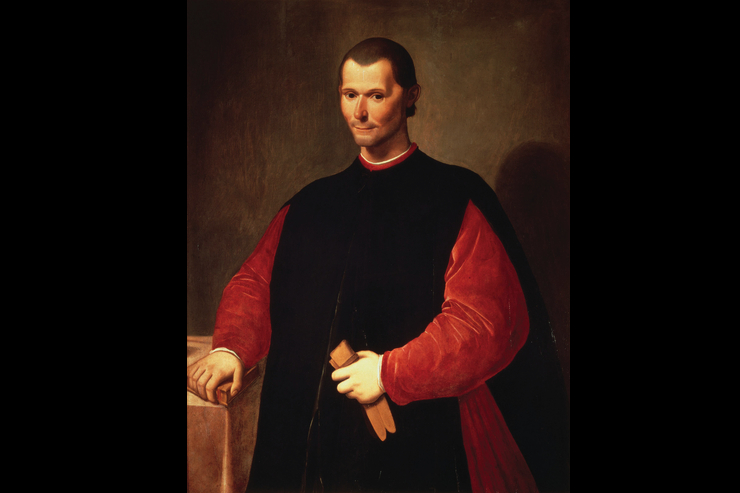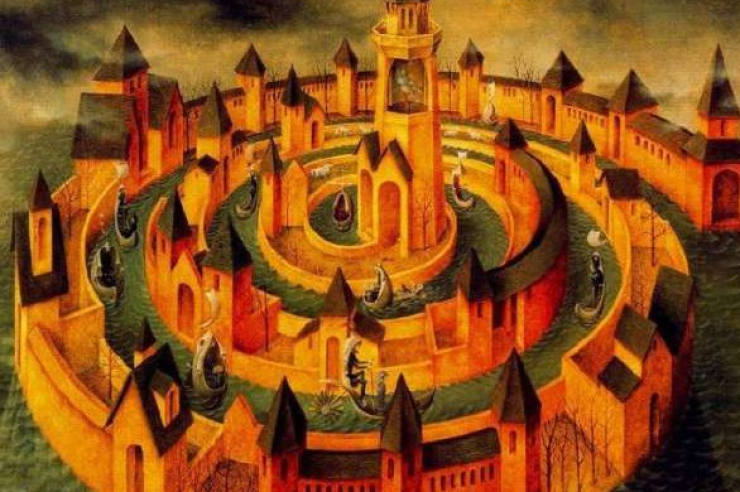Finally, it is over, and about time too! Canadians last week elected a new Prime Minister after a historically long eleven week campaign, or seventy-eight days to be exact. This campaign, initiated by the Conservative government of Stephen Harper, was twice as long as the usual thirty-seven-day campaign. Unfortunately for him it was probably too long as he and his party lost the election.
Meanwhile, just to the south of us, millions of people in the United States would be laughing at us for thinking eleven weeks was a long time for a political campaign, if they even knew that Canada had elections at all. It seems that Americans undergo political campaigns that run 24/7, non-stop, fifty-two weeks a year! In fact, I hear more about Donald Trump and Hillary Clinton in one week than I do about my own Prime Minister in a month!
Now you might be wondering why I’m discussing North American politics and how that pertains to our topic about modern “God is Dead” morality. Well, politics is applied morality and if your morality is faithless, so will your politics be. Let me give you an example.
Our new Prime Minister, Justin Trudeau, is a baptized Catholic (as was his father Pierre Trudeau who was also Prime Minister of Canada back in the 1970s. It was his father who legalized divorce and abortion in Canada.) Justin says, in his own words, that “As someone who was raised Roman Catholic, and who attended a Jesuit school, I understand that it is difficult for people of deep faith to set their beliefs aside in order to serve Canadians who may not share those beliefs. But for me, this is what liberalism is all about. It is the idea that private belief, while it ought to be valued and respected, is fundamentally different from public duty.” [1]
What Mr. Trudeau is implying here is that God will not hold a politician accountable for supporting or enacting a law that they know, in reason and conscience, is evil, so long as that is what is the will of the people (or as usually happens, the will of the political leaders).
True to his position, Mr. Trudeau stated categorically and unequivocally prior to the election that any person who wanted to run for election as a Member of Parliament for the Liberal Party of Canada had to be pro-abortion, and if they did happen to be pro-life, they had to be prepared to vote according to the pro-abortion party line, not according to their conscience.
This is what we can call “institutionalized hypocrisy” of the most evil kind, encapsulated in the comment: “I’m personally opposed but….”
Niccolò Machiavelli
In University, every first year political science student is made to read Machiavelli’s “The Prince.” This little book, written in the 1500s, was the first step on the long road to our modern day “God is Dead” politics. Machiavelli’s impact on politics was probably as profound as Luther’s impact was on religion.
Born in Florence, Italy in 1469, Niccolò Machiavelli grew up in a world that was swirling with intrigue, corruption, conflict and hypocrisy, both in the State and in the Church. What sets Machiavelli apart from all others is his response to this iniquity. In ages prior, when civilizations became corrupt, prophets and writers such as Jeremiah and Cicero would try to encourage people to return to the fundamental, universal truths. For Jeremiah, this was the Torah and the Commandments, for Cicero it was the fundamental Roman virtues that allowed Rome to become so great. Machiavelli did the opposite. He encouraged people not to be good.
Machiavelli was the first to openly promote the idea that “the ends justify the means.” He writes, “hence it is necessary to a prince, if he wants to maintain himself (his power), to learn to be able not to be good…” and “… he will find that some of the things that appear to be virtues will, if he practices them, ruin him, and some of the things that appear to be vices will bring him security and prosperity.” In short, Machiavelli advises that leaders should have a flexible disposition, “As I said above, he should not deviate from what is good, if that is possible, but he should know how to do evil, if that is necessary.” [2]
Ideas Have Consequences
How many times have you heard the lament: “you can’t trust politicians, they’ll say whatever you want to hear to get elected, then they’ll do whatever they want.” Or the common advice given to political leaders: “Make all the changes you want right away, then pretend you have softened by giving them breaks and handouts later on in your mandate. By the time the next election comes up they’ll have forgotten what you did in the first year.” This is not leadership, this is manipulation.
This cynicism, both on the part of the governed and those who govern, is not healthy for any society for if we are not striving for a common good rooted in reality and truth then that society will collapse through fragmentation. Just as Christianity fragmented when Luther rejected the authority of the Catholic Church in matters of faith and morals, so too has society fragmented from the rejection of universal moral truths and virtues. Everyone has their own ideas about what is good and evil and in that confusion the State has only one recourse, a strict imposition of its will through force, what Pope Emeritus Benedict calls “the Dictatorship of Relativism,” as evidenced by Mr. Trudeau in his comments above.
I will conclude with the comments of Benjamin Wiker, Ph.D:
“… our point is this: to embrace the notion that it is not only permissible but also laudable to do evil so that good might come, one must reject God, the soul, and the afterlife. That is just what Machiavelli did, and that is the ultimate effect of his counsel. … Christianity, Machiavelli contends, focuses our energies on an imaginary kingdom in the sky and thereby turns us away from making the real world a peaceful, comfortable, even quite pleasurable home. Moreover, Christianity ties our hands by moral rules—backed up by the imaginary stick and carrot of hell and heaven—so that we cannot do the necessary dirty work. Machiavelli thereby initiates the great conflict between modern secularism and Christianity that largely defines the next five hundred years of Western history.” [3]
Footnotes
[1] https://www.lifesitenews.com/news/justin-trudeau-says-gay-marriage-and-abortion-reflect-his-core-principles-i
[2] Machiavelli, Niccolo; The Prince, Penguin Classics, 1985
[3] Wiker, Benjamin, Ph.D., 10 Books That Screwed Up The World: And 5 Others That Didn’t Help, Regnery Publishing, Inc. 2008, p15-16















